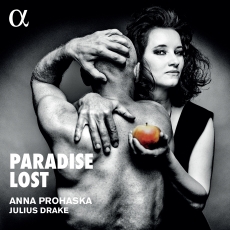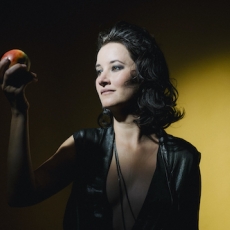Anna Prohaska - Paradise Lost - Gramophone
As one might expect from its Miltonic title, Anna Prohaska and Julius Drake’s ‘Paradise Lost’ takes the Biblical narrative of the fall of man and the expulsion from Eden as its starting point, though this is not so much a disc of sacred music as a complex examination of our sense of existential alienation from the ideal of the perfect earthly life that Paradise represents. Ambitiously programmed, it aims high (arguably too high), touching on the relationship between innocence and experience, our fantasies of union with unsullied nature, and the suffering and injustice resulting from our desecration of the world in which we live.
The mood, bittersweet at best, darkens as it progresses. The opening song, Ravel’s ‘Trois beaux oiseaux du paradis’, reminds us that the very idea of Paradise contains that which must undermine it, as natural beauty offsets thoughts of an absent soldier lover. The erotic idyll of Daniel-Lesur’s ‘Ce qu’Adam dit à Ève’ is eventually fractured by birdsong, summoning the lovers into the potentially dangerous world beyond, and a group of bitter, aphoristic songs, flanking Britten’s ‘A Poison Tree’ at the midpoint, eventually shatters the atmosphere, ushering in Lieder about exile, banishment and lovelessness. The emotional climax comes with the urban horror of Eisler’s ‘Hollywood-Elegien’ (‘Paradise and hell can be one city’) and Mahler’s contemplation of poverty and hunger in ‘Das irdische Leben’, before the disc closes ambiguously with Crumb’s ‘Wind Elegy’, in which nature itself mourns for errant humanity.
It also allows Prohaska and Drake to explore an uncommonly wide stylistic range, from Purcell to Reimann at his most pointillistic, embracing the bravura coloratura of the Fire’s aria from Ravel’s L’enfant et les sortilèges and the agitprop anger of Brecht and Eisler at their most trenchant. Sometimes a flutter creeps into Prohaska’s tone, and consonants can slip, particularly when singing in French: Debussy’s ‘Apparition’, for instance, sounds really rapturous and ecstatic, though we hear fractionally too few of the words. Elsewhere, though, there are marvellous things. Schubert’s ‘Auflösung’, taken faster than usual, achieves real exaltation. Line and dynamic control are everything in an aria from Das Paradies und die Peri, which is as exquisite as it is sorrowful. And the fraught dialogue of ‘Das irdische Leben’ is devastatingly done, with the child’s misery sharply contrasted with the mother’s increasing desperation.
Prohaska’s Eisler is excellent, and we could perhaps do with a whole disc of it. The extracts from La chanson d’Ève and Messiaen’s Harawi, however, lose some of their impact away from their respective cycles: the Messiaen, in particular, draws a virtuoso display of tone colour from Drake that leaves you hankering after the complete work. He, characteristically, is exemplary throughout, beautifully expressive and always alert to the subtle shifts of meaning of each song. It’s a challenging recital that in some ways surveys a greater subject than can adequately be contained on a single disc. But the best of it is very fine and infinitely rewarding.

